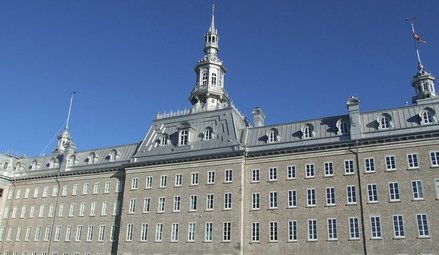- By theme
- Jesus
- The many proofs of Christ’s resurrection
- Saint Thomas Aquinas: God gave all the divine proofs we needed to believe
- The surpassing power of Christ's word
- Lewis’s trilemma: a proof of Jesus’s divinity
- God saves: the power of the holy name of Jesus
- Jesus spoke and acted as God's equal
- Jesus' divinity is actually implied in the Koran
- Jesus came at the perfect time of history
- Rabbinical sources testify to Jesus' miracles
- Mary
- The Church
- The Bible
- An enduring prophecy and a series of miraculous events preventing the reconstruction of the Temple
- The authors of the Gospels were either eyewitnesses or close contacts of those eyewitnesses
- Onomastics support the historical reliability of the Gospels
- The New Testament was not altered
- The New Testament is the best-attested manuscript of Antiquity
- The Gospels were written too early after the facts to be legends
- Archaeological finds confirm the reliability of the New Testament
- The criterion of embarrassment proves that the Gospels tell the truth
- The dissimilarity criterion strengthens the case for the historical reliability of the Gospels
- 84 details in Acts verified by historical and archaeological sources
- The unique prophecies that announced the Messiah
- The time of the coming of the Messiah was accurately prophesied
- The prophet Isaiah's ultra accurate description of the Messiah's sufferings
- Daniel's "Son of Man" is a portrait of Christ
- The Apostles
- Saint Peter, prince of the apostles
- Saint John the Apostle: an Evangelist and Theologian who deserves to be better known (d. 100)
- Saint Matthew, apostle, evangelist and martyr (d. 61)
- James the Just, “brother” of the Lord, apostle and martyr (d. 62 AD)
- Saint Matthias replaces Judas as an apostle (d. 63)
- The martyrs
- The protomartyr Saint Stephen (d. 31)
- Polycarp, bishop of Smyrna, disciple of John and martyr (d. 155)
- Saint Blandina and the Martyrs of Lyon: the fortitude of faith (177 AD)
- Saint Agatha stops a volcano from destroying the city of Catania (d. 251)
- Saint Lucy of Syracuse, virgin and martyr for Christ (d. 304)
- Thomas More: “The king’s good servant, but God’s first”
- The martyrdom of Paul Miki and his companions (d. 1597)
- The martyrs of Angers and Avrillé (1794)
- The Martyrs of Compiègne (1794)
- The Vietnamese martyrs Father Andrew Dung-Lac and his 116 companions (17th-19th centuries)
- He braved torture to atone for his apostasy (d. 1818)
- Blaise Marmoiton: the epic journey of a missionary to New Caledonia (d. 1847)
- José Luis Sanchez del Rio, martyred at age 14 for Christ the King (d. 1928)
- Saint Maximilian Kolbe, Knight of the Immaculate (d. 1941)
- The monks
- The Desert Fathers (3rd century)
- Saint Anthony of the Desert, a father of monasticism (d. 356)
- Saint Benedict, father of Western monasticism (d. 550)
- Saint Bruno the Carthusian (d.1101): the miracle of a hidden life
- Blessed Angelo Agostini Mazzinghi: the Carmelite with flowers pouring from his mouth (d. 1438)
- Monk Abel of Valaam's accurate prophecies about Russia (d. 1841)
- The more than 33,000 miracles of Saint Charbel Maklouf (d. 1898)
- Saint Pio of Pietrelcina (d. 1968): How God worked wonders through "a poor brother who prays"
- The surprising death of Father Emmanuel de Floris (d. 1992)
- The prophecies of Saint Paisios of Mount Athos (d. 1994)
- The saints
- Saints Anne and Joachim, parents of the Virgin Mary (19 BC)
- Saint Nazarius, apostle and martyr (d. 68 or 70)
- Ignatius of Antioch: successor of the apostles and witness to the Gospel (d. 117)
- Saint Gregory the Miracle-Worker (d. 270)
- Saint Martin of Tours: patron saint of France, father of monasticism in Gaul, and the first great leader of Western monasticism (d. 397)
- Saint Lupus, the bishop who saved his city from the Huns (d. 623)
- Saint Dominic of Guzman (d.1221): an athlete of the faith
- Saint Francis, the poor man of Assisi (d. 1226)
- Saint Anthony of Padua: "everyone’s saint"
- Saint Rose of Viterbo or How prayer can transform the world (d. 1252)
- Saint Simon Stock receives the scapular of Mount Carmel from the hands of the Virgin Mary
- The unusual boat of Saint Basil of Ryazan
- Saint Agnes of Montepulciano's complete God-confidence (d. 1317)
- The extraordinary conversion of Michelina of Pesaro
- Saint Peter Thomas (d. 1366): a steadfast trust in the Virgin Mary
- Saint Rita of Cascia: hoping against all hope
- Saint Catherine of Genoa and the Fire of God's love (d. 1510)
- Saint Anthony Mary Zaccaria, physician of bodies and souls (d. 1539)
- Saint Ignatius of Loyola (d. 1556): "For the greater glory of God"
- Brother Alphonsus Rodríguez, SJ: the "holy porter" (d. 1617)
- Martin de Porres returns to speed up his beatification (d. 1639)
- Virginia Centurione Bracelli: When God is the only goal, all difficulties are overcome (d.1651)
- Saint Marie of the Incarnation, "the Teresa of New France" (d.1672)
- St. Francis di Girolamo's gift of reading hearts and souls (d. 1716)
- Rosa Venerini: moving in the ocean of the Will of God (d. 1728)
- Seraphim of Sarov (1759-1833): the purpose of the Christian life is to acquire the Holy Spirit
- Camille de Soyécourt, filled with divine fortitude (d. 1849)
- Bernadette Soubirous, the shepherdess who saw the Virgin Mary (1858)
- Saint John Vianney (d. 1859): the global fame of a humble village priest
- Gabriel of Our Lady of Sorrows, the "Gardener of the Blessed Virgin" (d. 1862)
- Father Gerin, the holy priest of Grenoble (1863)
- Blessed Francisco Palau y Quer: a lover of the Church (d. 1872)
- Saints Louis and Zelie Martin, the parents of Saint Therese of Lisieux (d. 1894 and 1877)
- The supernatural maturity of Francisco Marto, “contemplative consoler of God” (d. 1919)
- Saint Faustina, apostle of the Divine Mercy (d. 1938)
- Brother Marcel Van (d.19659): a "star has risen in the East"
- Doctors
- The mystics
- Lutgardis of Tongeren and the devotion to the Sacred Heart
- Saint Angela of Foligno (d. 1309) and "Lady Poverty"
- Saint John of the Cross: mystic, reformer, poet, and universal psychologist (+1591)
- Blessed Anne of Jesus: a Carmelite nun with mystical gifts (d.1621)
- Catherine Daniélou: a mystical bride of Christ in Brittany
- Saint Margaret Mary sees the "Heart that so loved mankind"
- Mother Yvonne-Aimée of Jesus' predictions concerning the Second World War (1922)
- Sister Josefa Menendez, apostle of divine mercy (d. 1923)
- Edith Royer (d. 1924) and the Sacred Heart Basilica of Montmartre
- Rozalia Celak, a mystic with a very special mission (d. 1944)
- Visionaries
- Saint Perpetua delivers her brother from Purgatory (203)
- María de Jesús de Ágreda, abbess and friend of the King of Spain
- Discovery of the Virgin Mary's house in Ephesus (1891)
- Sister Benigna Consolata: the "Little Secretary of Merciful Love" (d. 1916)
- Maria Valtorta's visions match data from the Israel Meteorological Service (1943)
- Berthe Petit's prophecies about the two world wars (d. 1943)
- Maria Valtorta saw only one pyramid at Giza in her visions... and she was right! (1944)
- The 700 extraordinary visions of the Gospel received by Maria Valtorta (d. 1961)
- The amazing geological accuracy of Maria Valtorta's writings (d. 1961)
- Maria Valtorta's astronomic observations consistent with her dating system
- Discovery of an ancient princely house in Jerusalem, previously revealed to a mystic (d. 1961)
- The popes
- The great witnesses of the faith
- Saint Augustine's conversion: "Why not this very hour make an end to my uncleanness?" (386)
- Thomas Cajetan (d. 1534): a life in service of the truth
- Madame Acarie, "the servant of the servants of God" (d. 1618)
- Blaise Pascal (d.1662): Biblical prophecies are evidence
- Madame Élisabeth and the sweet smell of virtue (d. 1794)
- Jacinta, 10, offers her suffering to save souls from hell (d. 1920)
- Father Jean-Édouard Lamy: "another Curé of Ars" (d. 1931)
- Christian civilisation
- The depth of Christian spirituality
- John of the Cross' Path to perfect union with God based on his own experience
- The dogma of the Trinity: an increasingly better understood truth
- The incoherent arguments against Christianity
- The "New Pentecost": modern day, spectacular outpouring of the Holy Spirit
- The Christian faith explains the diversity of religions
- Cardinal Pierre de Bérulle (d.1629) on the mystery of the Incarnation
- Christ's interventions in history
- Marian apparitions and interventions
- The Life-giving Font of Constantinople
- Our Lady of Virtues saves the city of Rennes in Bretagne (1357)
- Mary stops the plague epidemic at Mount Berico (1426)
- Our Lady of Miracles heals a paralytic in Saronno (1460)
- Cotignac: the first apparitions of the Modern Era (1519)
- Savona: supernatural origin of the devotion to Our Lady of Mercy (1536)
- The Virgin Mary delivers besieged Christians in Cusco, Peru
- The victory of Lepanto and the feast of Our Lady of the Rosary (1571)
- The apparitions to Brother Fiacre (1637)
- The “aldermen's vow”, or the Marian devotion of the people of Lyon (1643)
- Our Lady of Nazareth in Plancoët, Brittany (1644)
- Our Lady of Laghet (1652)
- Saint Joseph’s apparitions in Cotignac, France (1660)
- Heaven confides in a shepherdess of Le Laus (1664-1718)
- Zeitoun, a two-year miracle (1968-1970)
- The Holy Name of Mary and the major victory of Vienna (1683)
- Heaven and earth meet in Colombia: the Las Lajas shrine (1754)
- The five Marian apparitions that traced an "M" over France, and its new pilgrimage route
- A series of Marian apparitions and prophetic messages in Ukraine since the 19th century (1806)
- "Consecrate your parish to the Immaculate Heart of Mary" (1836)
- At La Salette, Mary wept in front of the shepherds (1846)
- Our Lady of Champion, Wisconsin: the first and only approved apparition of Mary in the US (1859)
- Gietrzwald apparitions: heavenly help to a persecuted minority
- The silent apparition of Knock Mhuire in Ireland (1879)
- Mary "Abandoned Mother" appears in a working-class district of Lyon, France (1882)
- The thirty-three apparitions of the Virgin Mary in Beauraing (1932)
- "Our Lady of the Poor" appears eight times in Banneux (1933)
- Fontanelle-Montichiari apparitions of Our Lady "Rosa Mystica" (1947)
- Mary responds to the Vows of the Polish Nation (1956)
- Zeitoun apparitions
- The Virgin Mary comes to France's rescue by appearing at L'Ile Bouchard (1947)
- Maria Esperanza Bianchini and Mary, Mary, Reconciler of Peoples and Nations (1976)
- Luz Amparo and the El Escorial apparitions
- The extraordinary apparitions of Medjugorje and their worldwide impact
- The Virgin Mary prophesied the 1994 Rwandan genocide (1981)
- Our Lady of Soufanieh's apparition and messages to Myrna Nazzour (1982)
- The Virgin Mary heals a teenager, then appears to him dozens of times (1986)
- Seuca, Romania: apparitions and pleas of the Virgin Mary, "Queen of Light" (1995)
- Angels and their manifestations
- Mont Saint-Michel: Heaven watching over France
- Angels give a supernatural belt to the chaste Thomas Aquinas (1243)
- The constant presence of demons and angels in the life of St Frances of Rome (d. 1440)
- Mother Yvonne-Aimée escapes from prison with the help of an angel (1943)
- Saved by Angels: The Miracle on Highway 6 (2008)
- Exorcisms in the name of Christ
- A wave of charity unique in the world
- Saint Peter Nolasco: a life dedicated to ransoming enslaved Christians (d. 1245)
- Saint Angela Merici: Christ came to serve, not to be served (d. 1540)
- Saint John of God: a life dedicated to the care of the poor, sick and those with mental disorders (d. 1550)
- Saint Camillus de Lellis, reformer of hospital care (c. 1560)
- Blessed Alix Le Clerc, encouraged by the Virgin Mary to found schools (d. 1622)
- Saint Vincent de Paul (d. 1660), apostle of charity
- Marguerite Bourgeoys, Montreal's first teacher (d. 1700)
- Frédéric Ozanam, inventor of the Church's social doctrine (d. 1853)
- Damian of Molokai: a leper for Christ (d. 1889)
- Pier Giorgio Frassati (d.1925): heroic charity
- Saint Dulce of the Poor, the Good Angel of Bahia (d. 1992)
- Mother Teresa of Calcutta (d. 1997): an unshakeable faith
- Heidi Baker: Bringing God's love to the poor and forgotten of the world
- Amazing miracles
- The miracle of liquefaction of the blood of St. Januarius (d. 431)
- The miracles of Saint Anthony of Padua (d. 1231)
- Saint Pius V and the miracle of the Crucifix (1565)
- Saint Philip Neri calls a teenager back to life (1583)
- The resurrection of Jérôme Genin (1623)
- Saint Francis de Sales brings back to life a victim of drowning (1623)
- Saint John Bosco and the promise kept beyond the grave (1839)
- The day the sun danced at Fatima (1917)
- Pius XII and the miracle of the sun at the Vatican (1950)
- When Blessed Charles de Foucauld saved a young carpenter named Charle (2016)
- Reinhard Bonnke: 89 million conversions (d. 2019)
- Miraculous cures
- The royal touch: the divine thaumaturgic gift granted to French and English monarchs (11th-19th centuries)
- With 7,500 cases of unexplained cures, Lourdes is unique in the world (1858-today)
- Our Lady at Pellevoisin: "I am all merciful" (1876)
- Mariam, the "little thing of Jesus": a saint from East to West (d.1878)
- Gemma Galgani: healed to atone for sinners' faults (d. 1903)
- The miraculous cure of Blessed Maria Giuseppina Catanea
- The extraordinary healing of Alice Benlian in the Church of the Holy Cross in Damascus (1983)
- The approved miracle for the canonization of Juan Diego Cuauhtlatoatzin (1990)
- Healed by St Charbel Makhlouf, her scars bleed each month for the benefit of unbelievers (1993)
- The miracle that led to Brother André's canonisation (1999)
- Bruce Van Natta's intestinal regrowth: an irrefutable miracle (2007)
- He had “zero” chance of living: a baby's miraculous recovery (2015)
- Manouchak, operated on by Saint Charbel (2016)
- How Maya was cured from cancer at Saint Charbel's tomb (2018)
- Preserved bodies of the saints
- Dying in the odour of sanctity
- The body of Saint Cecilia found incorrupt (d. 230)
- Stanislaus Kostka's burning love for God (d. 1568)
- Blessed Antonio Franco, bishop and defender of the poor (d. 1626)
- The incorrupt body of Marie-Louise Nerbollier, the visionary from Diémoz (d. 1910)
- The great exhumation of Saint Charbel (1950)
- Bilocations
- Inedias
- Levitations
- Lacrimations and miraculous images
- Saint Juan Diego's tilma (1531)
- The Rue du Bac apparitions of the Virgin Mary to St. Catherine Labouré (Paris, 1830)
- Mary weeps in Syracuse (1953)
- Teresa Musco (d.1976): salvation through the Cross
- Soufanieh: A flow of oil from an image of the Virgin Mary, and oozing of oil from the face and hands of Myrna Nazzour (1982)
- The Saidnaya icon exudes a wonderful fragrance (1988)
- Our Lady weeps in a bishop's hands (1995)
- Stigmates
- The venerable Lukarda of Oberweimar shares her spiritual riches with her convent (d. 1309)
- Blessed Maria Grazia Tarallo, mystic and stigmatist (d. 1912)
- Saint Padre Pio: crucified by Love (1918)
- Elena Aiello: "a Eucharistic soul"
- A Holy Triduum with a Syrian mystic, witnessing the sufferings of Christ (1987)
- A Holy Thursday in Soufanieh (2004)
- Eucharistic miracles
- Lanciano: the first and possibly the greatest Eucharistic miracle (750)
- A host came to her: 11-year-old Imelda received Communion and died in ecstasy (1333)
- Faverney's hosts miraculously saved from fire
- A tsunami recedes before the Blessed Sacrament (1906)
- Buenos Aires miraculous host sent to forensic lab, found to be heart muscle (1996)
- Relics
- The Veil of Veronica, known as the Manoppello Image
- For centuries, the Shroud of Turin was the only negative image in the world
- The Holy Tunic of Argenteuil's fascinating history
- Saint Louis (d. 1270) and the relics of the Passion
- The miraculous rescue of the Shroud of Turin (1997)
- A comparative study of the blood present in Christ's relics
- Jews discover the Messiah
- Francis Xavier Samson Libermann, Jewish convert to Catholicism (1824)
- Our Lady of the Miraculous Medal and the conversion of Alphonse Ratisbonne (1842)
- Max Jacob: a liberal gay Jewish artist converts to Catholicism (1909)
- Edith Stein - Saint Benedicta of the Cross: "A daughter of Israel who, during the Nazi persecutions, remained united with faith and love to the Crucified Lord, Jesus Christ, as a Catholic, and to her people as a Jew"
- Patrick Elcabache: a Jew discovers the Messiah after his mother is miraculously cured in the name of Jesus
- Cardinal Aron Jean-Marie Lustiger (d. 2007): Chosen by God
- Muslim conversions
- Buddhist conversions
- Atheist conversions
- The conversion of an executioner during the Terror (1830)
- God woos a poet's heart: the story of Paul Claudel's conversion (1886)
- Dazzled by God: Madeleine Delbrêl's story (1924)
- C.S. Lewis, the reluctant convert (1931)
- The day André Frossard met Christ in Paris (1935)
- MC Solaar's rapper converts after experiencing Jesus' pains on the cross
- Father Sébastien Brière, converted at Medjugorje (2003)
- Franca Sozzani, the "Pope of fashion" who wanted to meet the Pope (2016)
- Nelly Gillant: from Reiki Master to Disciple of Christ (2018)
- Testimonies of encounters with Christ
- Near-death experiences (NDEs) confirm Catholic doctrine on the Four Last Things
- The NDE of Saint Christina the Astonishing, a source of conversion to Christ (1170)
- Jesus audibly calls Alphonsus Liguori to follow him (1723)
- Blessed Dina Bélanger (d. 1929): loving God and letting Jesus and Mary do their job
- Gabrielle Bossis: He and I
- André Levet's conversion in prison
- Journey between heaven and hell: a "near-death experience" (1971)
- Alicja Lenczewska: conversations with Jesus (1985)
- Vassula Ryden and the "True Life in God" (1985)
- Nahed Mahmoud Metwalli: from persecutor to persecuted (1987)
- The Bible verse that converted a young Algerian named Elie (2000)
- Invited to the celestial court: the story of Chantal (2017)
- Providential stories
- The superhuman intuition of Saint Pachomius the Great
- Germanus of Auxerre's prophecy about Saint Genevieve's future mission, and protection of the young woman (446)
- Seven golden stars reveal the future location of the Grande Chartreuse Monastery (1132)
- The supernatural reconciliation of the Duke of Aquitaine (1134)
- Saint Zita and the miracle of the cloak (13th c.)
- Joan of Arc: "the most beautiful story in the world"
- John of Capistrano saves the Church and Europe (1456)
- A celestial music comforts Elisabetta Picenardi on her deathbed (d. 1468)
- Gury of Kazan: freed from his prison by a "great light" (1520)
- The strange adventure of Yves Nicolazic (1623)
- Julien Maunoir miraculously learns Breton (1626)
- Pierre de Keriolet: with Mary, one cannot be lost (1636)
- How Korea evangelized itself (18th century)
- A hundred years before it happened, Saint Andrew Bobola predicted that Poland would be back on the map (1819)
- The prophetic poem about John Paul II (1840)
- Don Bosco's angel dog: Grigio (1854)
- Thérèse of Lisieux saved countless soldiers during the Great War
- Lost for over a century, a Russian icon reappears (1930)
- In 1947, a rosary crusade liberated Austria from the Soviets (1946-1955)
- The discovery of the tomb of Saint Peter in Rome (1949)
- He should have died of hypothermia in Soviet jails (1972)
- God protects a secret agent (1975)
- Flowing lava stops at church doors (1977)
- A protective hand saved John Paul II and led to happy consequences (1981)
- Mary Undoer of Knots: Pope Francis' gift to the world (1986)
- Edmond Fricoteaux's providential discovery of the statue of Our Lady of France (1988)
- The Virgin Mary frees a Vietnamese bishop from prison (1988)
- The miracles of Saint Juliana of Nicomedia (1994)
- Global launch of "Pilgrim Virgins" was made possible by God's Providence (1996)
- The providential finding of the Mary of Nazareth International Center's future site (2000)
- Syrian Monastery shielded from danger multiple times (2011-2020)
- Jesus
- Who are we?
- Make a donation
< Toutes les raisons sont ici !

TOUTES LES RAISONS DE CROIRE
- Jesus
- The many proofs of Christ’s resurrection
- Saint Thomas Aquinas: God gave all the divine proofs we needed to believe
- The surpassing power of Christ's word
- Lewis’s trilemma: a proof of Jesus’s divinity
- God saves: the power of the holy name of Jesus
- Jesus spoke and acted as God's equal
- Jesus' divinity is actually implied in the Koran
- Jesus came at the perfect time of history
- Rabbinical sources testify to Jesus' miracles
- Mary
- The Church
- The Bible
- An enduring prophecy and a series of miraculous events preventing the reconstruction of the Temple
- The authors of the Gospels were either eyewitnesses or close contacts of those eyewitnesses
- Onomastics support the historical reliability of the Gospels
- The New Testament was not altered
- The New Testament is the best-attested manuscript of Antiquity
- The Gospels were written too early after the facts to be legends
- Archaeological finds confirm the reliability of the New Testament
- The criterion of embarrassment proves that the Gospels tell the truth
- The dissimilarity criterion strengthens the case for the historical reliability of the Gospels
- 84 details in Acts verified by historical and archaeological sources
- The unique prophecies that announced the Messiah
- The time of the coming of the Messiah was accurately prophesied
- The prophet Isaiah's ultra accurate description of the Messiah's sufferings
- Daniel's "Son of Man" is a portrait of Christ
- The Apostles
- Saint Peter, prince of the apostles
- Saint John the Apostle: an Evangelist and Theologian who deserves to be better known (d. 100)
- Saint Matthew, apostle, evangelist and martyr (d. 61)
- James the Just, “brother” of the Lord, apostle and martyr (d. 62 AD)
- Saint Matthias replaces Judas as an apostle (d. 63)
- The martyrs
- The protomartyr Saint Stephen (d. 31)
- Polycarp, bishop of Smyrna, disciple of John and martyr (d. 155)
- Saint Blandina and the Martyrs of Lyon: the fortitude of faith (177 AD)
- Saint Agatha stops a volcano from destroying the city of Catania (d. 251)
- Saint Lucy of Syracuse, virgin and martyr for Christ (d. 304)
- Thomas More: “The king’s good servant, but God’s first”
- The martyrdom of Paul Miki and his companions (d. 1597)
- The martyrs of Angers and Avrillé (1794)
- The Martyrs of Compiègne (1794)
- The Vietnamese martyrs Father Andrew Dung-Lac and his 116 companions (17th-19th centuries)
- He braved torture to atone for his apostasy (d. 1818)
- Blaise Marmoiton: the epic journey of a missionary to New Caledonia (d. 1847)
- José Luis Sanchez del Rio, martyred at age 14 for Christ the King (d. 1928)
- Saint Maximilian Kolbe, Knight of the Immaculate (d. 1941)
- The monks
- The Desert Fathers (3rd century)
- Saint Anthony of the Desert, a father of monasticism (d. 356)
- Saint Benedict, father of Western monasticism (d. 550)
- Saint Bruno the Carthusian (d.1101): the miracle of a hidden life
- Blessed Angelo Agostini Mazzinghi: the Carmelite with flowers pouring from his mouth (d. 1438)
- Monk Abel of Valaam's accurate prophecies about Russia (d. 1841)
- The more than 33,000 miracles of Saint Charbel Maklouf (d. 1898)
- Saint Pio of Pietrelcina (d. 1968): How God worked wonders through "a poor brother who prays"
- The surprising death of Father Emmanuel de Floris (d. 1992)
- The prophecies of Saint Paisios of Mount Athos (d. 1994)
- The saints
- Saints Anne and Joachim, parents of the Virgin Mary (19 BC)
- Saint Nazarius, apostle and martyr (d. 68 or 70)
- Ignatius of Antioch: successor of the apostles and witness to the Gospel (d. 117)
- Saint Gregory the Miracle-Worker (d. 270)
- Saint Martin of Tours: patron saint of France, father of monasticism in Gaul, and the first great leader of Western monasticism (d. 397)
- Saint Lupus, the bishop who saved his city from the Huns (d. 623)
- Saint Dominic of Guzman (d.1221): an athlete of the faith
- Saint Francis, the poor man of Assisi (d. 1226)
- Saint Anthony of Padua: "everyone’s saint"
- Saint Rose of Viterbo or How prayer can transform the world (d. 1252)
- Saint Simon Stock receives the scapular of Mount Carmel from the hands of the Virgin Mary
- The unusual boat of Saint Basil of Ryazan
- Saint Agnes of Montepulciano's complete God-confidence (d. 1317)
- The extraordinary conversion of Michelina of Pesaro
- Saint Peter Thomas (d. 1366): a steadfast trust in the Virgin Mary
- Saint Rita of Cascia: hoping against all hope
- Saint Catherine of Genoa and the Fire of God's love (d. 1510)
- Saint Anthony Mary Zaccaria, physician of bodies and souls (d. 1539)
- Saint Ignatius of Loyola (d. 1556): "For the greater glory of God"
- Brother Alphonsus Rodríguez, SJ: the "holy porter" (d. 1617)
- Martin de Porres returns to speed up his beatification (d. 1639)
- Virginia Centurione Bracelli: When God is the only goal, all difficulties are overcome (d.1651)
- Saint Marie of the Incarnation, "the Teresa of New France" (d.1672)
- St. Francis di Girolamo's gift of reading hearts and souls (d. 1716)
- Rosa Venerini: moving in the ocean of the Will of God (d. 1728)
- Seraphim of Sarov (1759-1833): the purpose of the Christian life is to acquire the Holy Spirit
- Camille de Soyécourt, filled with divine fortitude (d. 1849)
- Bernadette Soubirous, the shepherdess who saw the Virgin Mary (1858)
- Saint John Vianney (d. 1859): the global fame of a humble village priest
- Gabriel of Our Lady of Sorrows, the "Gardener of the Blessed Virgin" (d. 1862)
- Father Gerin, the holy priest of Grenoble (1863)
- Blessed Francisco Palau y Quer: a lover of the Church (d. 1872)
- Saints Louis and Zelie Martin, the parents of Saint Therese of Lisieux (d. 1894 and 1877)
- The supernatural maturity of Francisco Marto, “contemplative consoler of God” (d. 1919)
- Saint Faustina, apostle of the Divine Mercy (d. 1938)
- Brother Marcel Van (d.19659): a "star has risen in the East"
- Doctors
- The mystics
- Lutgardis of Tongeren and the devotion to the Sacred Heart
- Saint Angela of Foligno (d. 1309) and "Lady Poverty"
- Saint John of the Cross: mystic, reformer, poet, and universal psychologist (+1591)
- Blessed Anne of Jesus: a Carmelite nun with mystical gifts (d.1621)
- Catherine Daniélou: a mystical bride of Christ in Brittany
- Saint Margaret Mary sees the "Heart that so loved mankind"
- Mother Yvonne-Aimée of Jesus' predictions concerning the Second World War (1922)
- Sister Josefa Menendez, apostle of divine mercy (d. 1923)
- Edith Royer (d. 1924) and the Sacred Heart Basilica of Montmartre
- Rozalia Celak, a mystic with a very special mission (d. 1944)
- Visionaries
- Saint Perpetua delivers her brother from Purgatory (203)
- María de Jesús de Ágreda, abbess and friend of the King of Spain
- Discovery of the Virgin Mary's house in Ephesus (1891)
- Sister Benigna Consolata: the "Little Secretary of Merciful Love" (d. 1916)
- Maria Valtorta's visions match data from the Israel Meteorological Service (1943)
- Berthe Petit's prophecies about the two world wars (d. 1943)
- Maria Valtorta saw only one pyramid at Giza in her visions... and she was right! (1944)
- The 700 extraordinary visions of the Gospel received by Maria Valtorta (d. 1961)
- The amazing geological accuracy of Maria Valtorta's writings (d. 1961)
- Maria Valtorta's astronomic observations consistent with her dating system
- Discovery of an ancient princely house in Jerusalem, previously revealed to a mystic (d. 1961)
- The popes
- The great witnesses of the faith
- Saint Augustine's conversion: "Why not this very hour make an end to my uncleanness?" (386)
- Thomas Cajetan (d. 1534): a life in service of the truth
- Madame Acarie, "the servant of the servants of God" (d. 1618)
- Blaise Pascal (d.1662): Biblical prophecies are evidence
- Madame Élisabeth and the sweet smell of virtue (d. 1794)
- Jacinta, 10, offers her suffering to save souls from hell (d. 1920)
- Father Jean-Édouard Lamy: "another Curé of Ars" (d. 1931)
- Christian civilisation
- The depth of Christian spirituality
- John of the Cross' Path to perfect union with God based on his own experience
- The dogma of the Trinity: an increasingly better understood truth
- The incoherent arguments against Christianity
- The "New Pentecost": modern day, spectacular outpouring of the Holy Spirit
- The Christian faith explains the diversity of religions
- Cardinal Pierre de Bérulle (d.1629) on the mystery of the Incarnation
- Christ's interventions in history
- Marian apparitions and interventions
- The Life-giving Font of Constantinople
- Our Lady of Virtues saves the city of Rennes in Bretagne (1357)
- Mary stops the plague epidemic at Mount Berico (1426)
- Our Lady of Miracles heals a paralytic in Saronno (1460)
- Cotignac: the first apparitions of the Modern Era (1519)
- Savona: supernatural origin of the devotion to Our Lady of Mercy (1536)
- The Virgin Mary delivers besieged Christians in Cusco, Peru
- The victory of Lepanto and the feast of Our Lady of the Rosary (1571)
- The apparitions to Brother Fiacre (1637)
- The “aldermen's vow”, or the Marian devotion of the people of Lyon (1643)
- Our Lady of Nazareth in Plancoët, Brittany (1644)
- Our Lady of Laghet (1652)
- Saint Joseph’s apparitions in Cotignac, France (1660)
- Heaven confides in a shepherdess of Le Laus (1664-1718)
- Zeitoun, a two-year miracle (1968-1970)
- The Holy Name of Mary and the major victory of Vienna (1683)
- Heaven and earth meet in Colombia: the Las Lajas shrine (1754)
- The five Marian apparitions that traced an "M" over France, and its new pilgrimage route
- A series of Marian apparitions and prophetic messages in Ukraine since the 19th century (1806)
- "Consecrate your parish to the Immaculate Heart of Mary" (1836)
- At La Salette, Mary wept in front of the shepherds (1846)
- Our Lady of Champion, Wisconsin: the first and only approved apparition of Mary in the US (1859)
- Gietrzwald apparitions: heavenly help to a persecuted minority
- The silent apparition of Knock Mhuire in Ireland (1879)
- Mary "Abandoned Mother" appears in a working-class district of Lyon, France (1882)
- The thirty-three apparitions of the Virgin Mary in Beauraing (1932)
- "Our Lady of the Poor" appears eight times in Banneux (1933)
- Fontanelle-Montichiari apparitions of Our Lady "Rosa Mystica" (1947)
- Mary responds to the Vows of the Polish Nation (1956)
- Zeitoun apparitions
- The Virgin Mary comes to France's rescue by appearing at L'Ile Bouchard (1947)
- Maria Esperanza Bianchini and Mary, Mary, Reconciler of Peoples and Nations (1976)
- Luz Amparo and the El Escorial apparitions
- The extraordinary apparitions of Medjugorje and their worldwide impact
- The Virgin Mary prophesied the 1994 Rwandan genocide (1981)
- Our Lady of Soufanieh's apparition and messages to Myrna Nazzour (1982)
- The Virgin Mary heals a teenager, then appears to him dozens of times (1986)
- Seuca, Romania: apparitions and pleas of the Virgin Mary, "Queen of Light" (1995)
- Angels and their manifestations
- Mont Saint-Michel: Heaven watching over France
- Angels give a supernatural belt to the chaste Thomas Aquinas (1243)
- The constant presence of demons and angels in the life of St Frances of Rome (d. 1440)
- Mother Yvonne-Aimée escapes from prison with the help of an angel (1943)
- Saved by Angels: The Miracle on Highway 6 (2008)
- Exorcisms in the name of Christ
- A wave of charity unique in the world
- Saint Peter Nolasco: a life dedicated to ransoming enslaved Christians (d. 1245)
- Saint Angela Merici: Christ came to serve, not to be served (d. 1540)
- Saint John of God: a life dedicated to the care of the poor, sick and those with mental disorders (d. 1550)
- Saint Camillus de Lellis, reformer of hospital care (c. 1560)
- Blessed Alix Le Clerc, encouraged by the Virgin Mary to found schools (d. 1622)
- Saint Vincent de Paul (d. 1660), apostle of charity
- Marguerite Bourgeoys, Montreal's first teacher (d. 1700)
- Frédéric Ozanam, inventor of the Church's social doctrine (d. 1853)
- Damian of Molokai: a leper for Christ (d. 1889)
- Pier Giorgio Frassati (d.1925): heroic charity
- Saint Dulce of the Poor, the Good Angel of Bahia (d. 1992)
- Mother Teresa of Calcutta (d. 1997): an unshakeable faith
- Heidi Baker: Bringing God's love to the poor and forgotten of the world
- Amazing miracles
- The miracle of liquefaction of the blood of St. Januarius (d. 431)
- The miracles of Saint Anthony of Padua (d. 1231)
- Saint Pius V and the miracle of the Crucifix (1565)
- Saint Philip Neri calls a teenager back to life (1583)
- The resurrection of Jérôme Genin (1623)
- Saint Francis de Sales brings back to life a victim of drowning (1623)
- Saint John Bosco and the promise kept beyond the grave (1839)
- The day the sun danced at Fatima (1917)
- Pius XII and the miracle of the sun at the Vatican (1950)
- When Blessed Charles de Foucauld saved a young carpenter named Charle (2016)
- Reinhard Bonnke: 89 million conversions (d. 2019)
- Miraculous cures
- The royal touch: the divine thaumaturgic gift granted to French and English monarchs (11th-19th centuries)
- With 7,500 cases of unexplained cures, Lourdes is unique in the world (1858-today)
- Our Lady at Pellevoisin: "I am all merciful" (1876)
- Mariam, the "little thing of Jesus": a saint from East to West (d.1878)
- Gemma Galgani: healed to atone for sinners' faults (d. 1903)
- The miraculous cure of Blessed Maria Giuseppina Catanea
- The extraordinary healing of Alice Benlian in the Church of the Holy Cross in Damascus (1983)
- The approved miracle for the canonization of Juan Diego Cuauhtlatoatzin (1990)
- Healed by St Charbel Makhlouf, her scars bleed each month for the benefit of unbelievers (1993)
- The miracle that led to Brother André's canonisation (1999)
- Bruce Van Natta's intestinal regrowth: an irrefutable miracle (2007)
- He had “zero” chance of living: a baby's miraculous recovery (2015)
- Manouchak, operated on by Saint Charbel (2016)
- How Maya was cured from cancer at Saint Charbel's tomb (2018)
- Preserved bodies of the saints
- Dying in the odour of sanctity
- The body of Saint Cecilia found incorrupt (d. 230)
- Stanislaus Kostka's burning love for God (d. 1568)
- Blessed Antonio Franco, bishop and defender of the poor (d. 1626)
- The incorrupt body of Marie-Louise Nerbollier, the visionary from Diémoz (d. 1910)
- The great exhumation of Saint Charbel (1950)
- Bilocations
- Inedias
- Levitations
- Lacrimations and miraculous images
- Saint Juan Diego's tilma (1531)
- The Rue du Bac apparitions of the Virgin Mary to St. Catherine Labouré (Paris, 1830)
- Mary weeps in Syracuse (1953)
- Teresa Musco (d.1976): salvation through the Cross
- Soufanieh: A flow of oil from an image of the Virgin Mary, and oozing of oil from the face and hands of Myrna Nazzour (1982)
- The Saidnaya icon exudes a wonderful fragrance (1988)
- Our Lady weeps in a bishop's hands (1995)
- Stigmates
- The venerable Lukarda of Oberweimar shares her spiritual riches with her convent (d. 1309)
- Blessed Maria Grazia Tarallo, mystic and stigmatist (d. 1912)
- Saint Padre Pio: crucified by Love (1918)
- Elena Aiello: "a Eucharistic soul"
- A Holy Triduum with a Syrian mystic, witnessing the sufferings of Christ (1987)
- A Holy Thursday in Soufanieh (2004)
- Eucharistic miracles
- Lanciano: the first and possibly the greatest Eucharistic miracle (750)
- A host came to her: 11-year-old Imelda received Communion and died in ecstasy (1333)
- Faverney's hosts miraculously saved from fire
- A tsunami recedes before the Blessed Sacrament (1906)
- Buenos Aires miraculous host sent to forensic lab, found to be heart muscle (1996)
- Relics
- The Veil of Veronica, known as the Manoppello Image
- For centuries, the Shroud of Turin was the only negative image in the world
- The Holy Tunic of Argenteuil's fascinating history
- Saint Louis (d. 1270) and the relics of the Passion
- The miraculous rescue of the Shroud of Turin (1997)
- A comparative study of the blood present in Christ's relics
- Jews discover the Messiah
- Francis Xavier Samson Libermann, Jewish convert to Catholicism (1824)
- Our Lady of the Miraculous Medal and the conversion of Alphonse Ratisbonne (1842)
- Max Jacob: a liberal gay Jewish artist converts to Catholicism (1909)
- Edith Stein - Saint Benedicta of the Cross: "A daughter of Israel who, during the Nazi persecutions, remained united with faith and love to the Crucified Lord, Jesus Christ, as a Catholic, and to her people as a Jew"
- Patrick Elcabache: a Jew discovers the Messiah after his mother is miraculously cured in the name of Jesus
- Cardinal Aron Jean-Marie Lustiger (d. 2007): Chosen by God
- Muslim conversions
- Buddhist conversions
- Atheist conversions
- The conversion of an executioner during the Terror (1830)
- God woos a poet's heart: the story of Paul Claudel's conversion (1886)
- Dazzled by God: Madeleine Delbrêl's story (1924)
- C.S. Lewis, the reluctant convert (1931)
- The day André Frossard met Christ in Paris (1935)
- MC Solaar's rapper converts after experiencing Jesus' pains on the cross
- Father Sébastien Brière, converted at Medjugorje (2003)
- Franca Sozzani, the "Pope of fashion" who wanted to meet the Pope (2016)
- Nelly Gillant: from Reiki Master to Disciple of Christ (2018)
- Testimonies of encounters with Christ
- Near-death experiences (NDEs) confirm Catholic doctrine on the Four Last Things
- The NDE of Saint Christina the Astonishing, a source of conversion to Christ (1170)
- Jesus audibly calls Alphonsus Liguori to follow him (1723)
- Blessed Dina Bélanger (d. 1929): loving God and letting Jesus and Mary do their job
- Gabrielle Bossis: He and I
- André Levet's conversion in prison
- Journey between heaven and hell: a "near-death experience" (1971)
- Alicja Lenczewska: conversations with Jesus (1985)
- Vassula Ryden and the "True Life in God" (1985)
- Nahed Mahmoud Metwalli: from persecutor to persecuted (1987)
- The Bible verse that converted a young Algerian named Elie (2000)
- Invited to the celestial court: the story of Chantal (2017)
- Providential stories
- The superhuman intuition of Saint Pachomius the Great
- Germanus of Auxerre's prophecy about Saint Genevieve's future mission, and protection of the young woman (446)
- Seven golden stars reveal the future location of the Grande Chartreuse Monastery (1132)
- The supernatural reconciliation of the Duke of Aquitaine (1134)
- Saint Zita and the miracle of the cloak (13th c.)
- Joan of Arc: "the most beautiful story in the world"
- John of Capistrano saves the Church and Europe (1456)
- A celestial music comforts Elisabetta Picenardi on her deathbed (d. 1468)
- Gury of Kazan: freed from his prison by a "great light" (1520)
- The strange adventure of Yves Nicolazic (1623)
- Julien Maunoir miraculously learns Breton (1626)
- Pierre de Keriolet: with Mary, one cannot be lost (1636)
- How Korea evangelized itself (18th century)
- A hundred years before it happened, Saint Andrew Bobola predicted that Poland would be back on the map (1819)
- The prophetic poem about John Paul II (1840)
- Don Bosco's angel dog: Grigio (1854)
- Thérèse of Lisieux saved countless soldiers during the Great War
- Lost for over a century, a Russian icon reappears (1930)
- In 1947, a rosary crusade liberated Austria from the Soviets (1946-1955)
- The discovery of the tomb of Saint Peter in Rome (1949)
- He should have died of hypothermia in Soviet jails (1972)
- God protects a secret agent (1975)
- Flowing lava stops at church doors (1977)
- A protective hand saved John Paul II and led to happy consequences (1981)
- Mary Undoer of Knots: Pope Francis' gift to the world (1986)
- Edmond Fricoteaux's providential discovery of the statue of Our Lady of France (1988)
- The Virgin Mary frees a Vietnamese bishop from prison (1988)
- The miracles of Saint Juliana of Nicomedia (1994)
- Global launch of "Pilgrim Virgins" was made possible by God's Providence (1996)
- The providential finding of the Mary of Nazareth International Center's future site (2000)
- Syrian Monastery shielded from danger multiple times (2011-2020)
Les saints
n°86
Spain, France, and Italy
1170-1221
Saint Dominic de Guzman: an athlete of the faith
With his cheerful and likable personality, Dominic took great joy in praying intensely and resolving difficult doctrinal questions, in order to defend the true teachings of Christ. As a canon in Osma, Spain, he acquired an in-depth knowledge of the Scriptures. His fervor in celebrating Mass was noticeable. He often lingered in the convent church, radiant, levitating in a state of ecstasy or in the company of angels. An ardent defender of sacred theology and doctrine, Dominic fought the Cathars' theories and obtained countless conversions of heretics. He founded the Order of Friars Preachers, and fought ardently for the salvation of souls. His devotion to Mary and his zeal for defending the Church made him a true athlete in the defence of the faith.
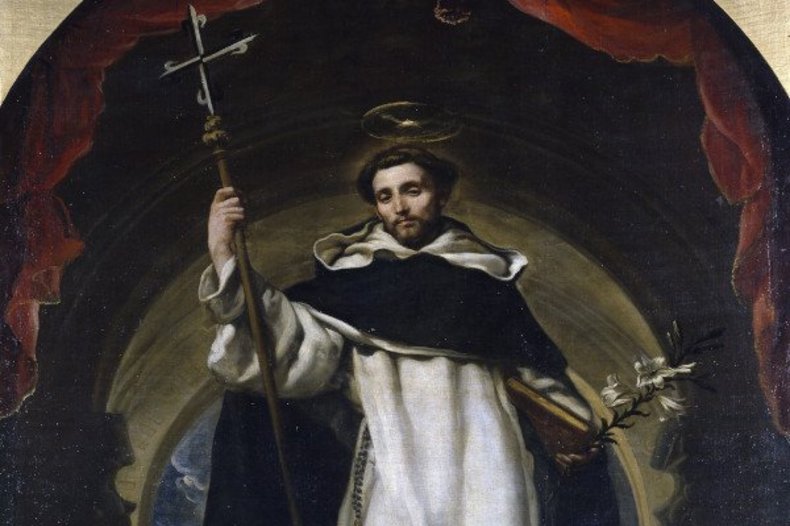
Detail of Saint Dominic of Guzman by Claudio Coello, c. 1685, Prado Museum, Madrid. CC0/wikimedia
Les raisons d'y croire :
- Dominic converted many people back to the true faith who had been seduced by the Cathar heresy. An example of piety and poverty, his joyful faith and contagious charity were responsible for many conversions. Where eminent preachers had failed to convince the Albigensians with their words, Dominic succeeded with his compassion. Until then, no one had brought such opposing parties together in the unity of the Catholicfaith better than he.
- Endowed with profound humility, he refused to allow those close to him to reveal the miracles or mystical events in his life. He preferred focusing on prayer or preaching. Nevertheless, solid sources attest that Dominic, moved by compassion, healed a brother at death's door, saved people from drowning, delivered a demon-possessed man, multiplied the brothers' bread and wine rations, stopped a fire with his tunic, inexplicably acquired the gift of tongues, etc.
- He prayed uncessantly and everywhere: prostrate on the ground or on his knees, with his arms raised or stretched sideways to imitate Jesus on the cross, seated while meditating on the divine Word, shedding tears while imploring God, singing and invoking the Virgin Mary, on the road, praising God even in the midst of heavy rain and exhausting journeys. His rich interior life revealed his friendship with Christ.
- Endowed with profound wisdom, both in his contemplative and apostolic life, his remarkable influence spread throughout the world for more than eight centuries, through the order he founded. This longevity is a testament to Dominic's virtues. In fact, the Virgin Mary must have planned and prepared this new religious order, for she said, "This order belongs to me."
- The Dominican order has produced countless saints, doctors, preachers, men and women religious, and tertiaries, whose way of life is inspired, to this day, by the evangelical wisdome and energy of Saint Dominic. The Order of Preachers gave the Church Saint Thomas Aquinas (a Doctor of the Church), Pope Saint Pius V, Saint Catherine of Siena and Fra Angelico.
Synthèse :
Born around 1170, the young Dominic came from an ancient Spanish family in Castile. Tradition says that his mother, being barren, made a pilgrimage to the Abbey of Silos, and dreamt that a dog leapt from her womb carrying a flaming torch in its mouth, and seemed to set the earth on fire. This dream was related to the future zeal and holiness of the child God eventually granted her. Then, on the day of his baptism, his godmother saw, again in a dream, the child's forehead marked with a radiant star - an omen of a unique destiny.
During his youth, Spain was desolated by famine. Dominic was so moved by the poverty he witnessed that to his fellow students' astonishment, he gave away his money and sold his clothes, furniture, and even precious manuscripts to feed the hungry.
At the age of fifteen, Dominique left to study north of Madrid, at the University of Palencia. After ten years devoted to the study of literature and philosophy, driven by a burning thirst for the Word of God, he devoted himself zealously to theology, leading a contemplative, fraternal and ascetic life. After becoming a canon of Osma Cathedral, he lived under the rule of Saint Augustine for nine years, helping to educate the people of the region.
In 1203, he was sent with his bishop on a diplomatic mission to northern Europe, to negotiate a marriage between the ruling families of Spain and Denmark. He had to travel through Languedoc, which was ravaged by the war between the Cathars and the Catholics - a conflict that was spreading to the south of France. Seeing the spiritual ravages the Albigensian heresy (Catharism) did to souls trapped in error, he lamented to God: "What will become of sinners?" Although he showed unfailing determination in his battles, those close to him nicknamed him the "gentle Father Dominic".
Faced with the learned and ascetic Cathars, he worked to sharpen his arguments in order to build up the true faith, and trained preachers in detachment and austerity. At the time, Catharism appealed to the belief that only the perfect could enter paradise. This Christian religious sect preached gnostic and dualistic beliefs, rejected the bonds of marriage, and lived in great austerity to detach from the material world and live in a state of purity, abstaining from meat and wine. The most influential families even adhered to this belief of a world divided between good and evil. Thanks to supernatural help and assiduous intellectual work, Dominic's wisdom won over many heretics.
Dominic traveled from one town to the next, winning debates and impressing his audience by the degree of austerity with which he lived his life. On one of these occasions, the judges, not being able to agree on who was the winner of the debate, decided to submit Brother Dominic’s libellus to an ordeal by fire. The saint’s libellus, his theological manual, was thrown into a fire three times, and each time the book was returned from the flames unharmed.
Saint Dominic would travel on foot, dressed in poor clothes, sleeping directly on the floor, like the first apostles, praying, fasting and imploring God for lost souls with tears.
During public debates or meetings in private homes, he clearly explained the true faith, distinguishing it from personal opinions. Dominic's radiant face, proof of his great kindness, did not use pressure but respected people's freedom in accepting the true teaching of the divine Word. His zeal was crowned with success: the town's population usually ended up sending away the heretics among them.
He founded convents into which Dominican vocations poured. Conversions and miracles multiplied. One day, "two handsome young men appeared in the middle of the refectory, carrying loaves of bread in two white tablecloths. They placed before each brother a whole loaf of bread of admirable beauty. When they reached Blessed Dominic, they bowed their heads and disappeared" (Lacordaire, Vie de saint Dominique, Cerf, 2007, p. 180, excerpt from Sister Cecile's account).
Finally, he sent his brothers to study at the best universities in Europe. According to Pope Honorius III, these formidable preachers became "champions of the faith". One day, a student from Bologna asked Dominic: "Where did you study the most?" The gentle Father Dominic replied: "In the book of charity, more than in the books of men." Dominic died on August 6, 1221, in a cell of a convent in Bologna. He had no property of his own. His last words were: "Have charity among you; hold to humility; possess voluntary poverty.”
Diane Suteau, author of the novel Les conquérants de lumière.
Au-delà des raisons d'y croire :
The first friar preachers were discreet about the countless miracles and conversions performed by Saint Dominic. However, we do know that he was a hugely esteemed and popular preacher. Many lives were certainly changed by the grace and truth emanating from his preaching.
Aller plus loin :
The Life of Saint Dominic by Bede Jarrett OP, Cluny Media LLC (December 26, 2018)
En savoir plus :- St. Dominic, by Mary Jean Dorcy, TAN Books; Revised ed. edition (January 1, 2009)
- Saint Dominic's Way of Life: A Path to Knowing and Loving God by Patrick Mary Briscoe Op and Jacob Bertrand Janczyk Op, Our Sunday Visitor (June 2, 2021)
The Spirit of St. Dominic by Humbert Clerissac OP, Cluny Media, LLC (December 29, 2015)
The Spirit of St. Dominic by Humbert Clerissac OP, Cluny Media, LLC (December 29, 2015)
LES RAISONS DE LA SEMAINE
L’Église ,
Les saints ,
Les apparitions et interventions mariales

Saint Simon Stock reçoit le scapulaire du Mont Carmel des mains de la Vierge Marie
Les saints
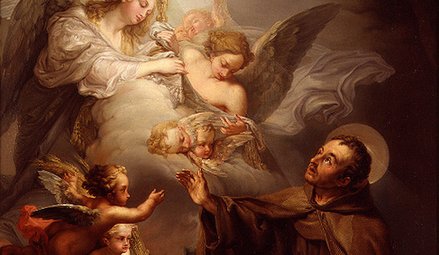
Saint Pascal Baylon, humble berger
Les saints ,
Corps conservés des saints ,
Stigmates

Sainte Rita de Cascia, celle qui espère contre toute espérance
Les saints

L’étrange barque de saint Basile de Riazan
Les saints ,
Corps conservés des saints
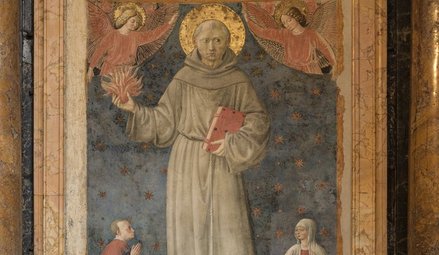
Saint Antoine de Padoue, le « saint que tout le monde aime »
Les saints ,
Conversions d'athées ,
Témoignages de rencontres avec le Christ
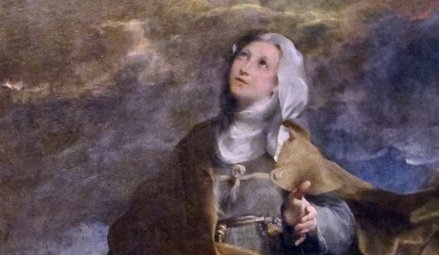
L’extraordinaire conversion de Micheline de Pesaro
Les saints ,
Les anges et leurs manifestations ,
Corps conservés des saints
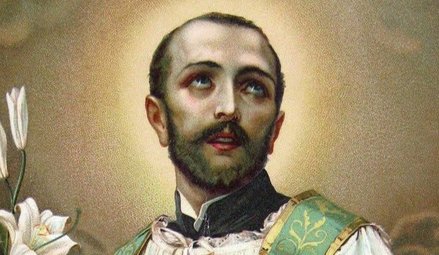
Saint Antoine-Marie Zaccaria, médecin des corps et des âmes
Les saints

Les saints époux Louis et Zélie Martin
Les saints ,
La profondeur de la spiritualité chrétienne
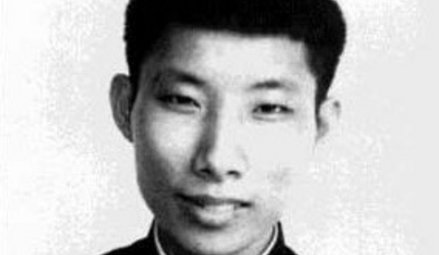
Frère Marcel Van, une « étoile s’est levée en Orient »
Les saints
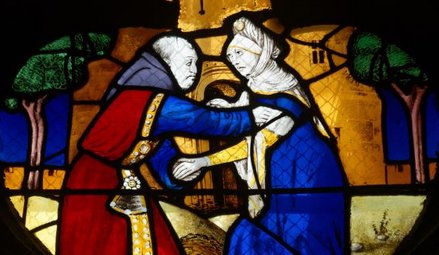
Sainte Anne et saint Joachim, parents de la Vierge Marie
Les saints
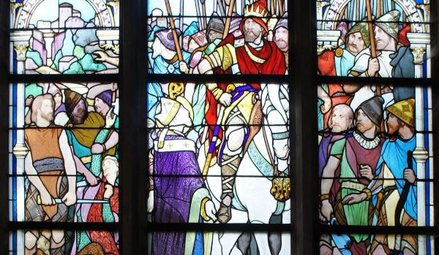
Saint Loup, l’évêque qui fit rebrousser chemin à Attila
Les saints
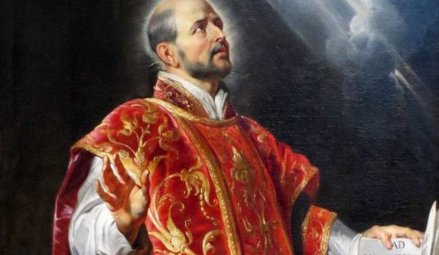
Saint Ignace de Loyola : à la plus grande gloire de Dieu
Les saints

Saint Nazaire, apôtre et martyre
Les saints ,
Des miracles étonnants ,
Guérisons miraculeuses

Saint Jean-Marie Vianney, la gloire mondiale d’un petit curé de campagne
Les moines ,
Les saints
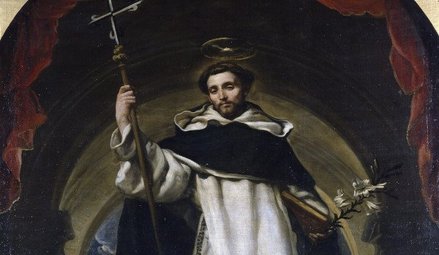
Saint Dominique de Guzman, athlète de la foi
Les saints ,
Témoignages de rencontres avec le Christ
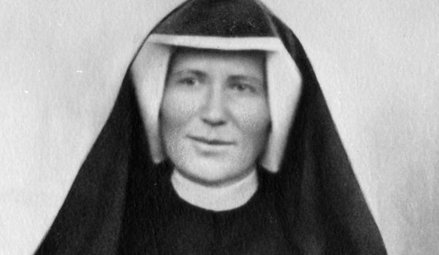
Sainte Faustine, apôtre de la divine miséricorde
Les moines ,
Lévitations ,
Stigmates ,
Conversions d'athées ,
Témoignages de rencontres avec le Christ
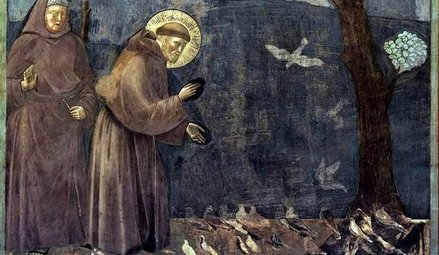
Saint François, le pauvre d’Assise
Les saints ,
Les grands témoins de la foi

Ignace d’Antioche : successeur des apôtres et témoin de l’Évangile
Les saints

Antoine-Marie Claret, un tisserand devenu ambassadeur du Christ
Les saints
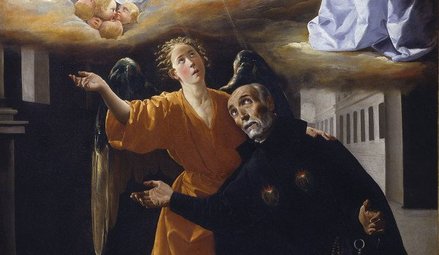
Alphonse Rodriguez, le saint portier jésuite
Les saints ,
Des miracles étonnants ,
Bilocations

Martin de Porrès revient hâter sa béatification
Les saints ,
Des miracles étonnants
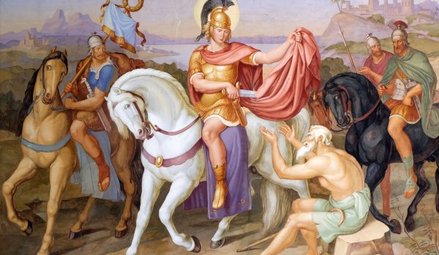
Saint Martin de Tours, père de la France chrétienne
Les saints
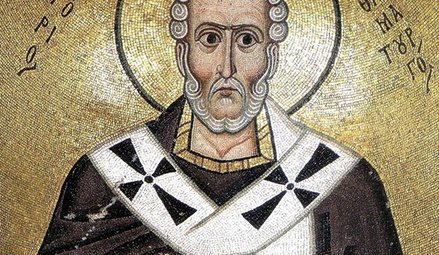
Saint Grégoire le Thaumaturge
Les saints ,
Une vague de charité unique au monde ,
Corps conservés des saints

Virginia Centurione Bracelli : quand toutes les difficultés s’aplanissent
Les saints
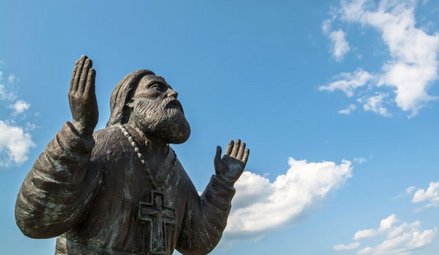
Lorsque le moine Seraphim contemple le Saint-Esprit
Les saints ,
Les apparitions et interventions mariales ,
Des miracles étonnants ,
Corps conservés des saints
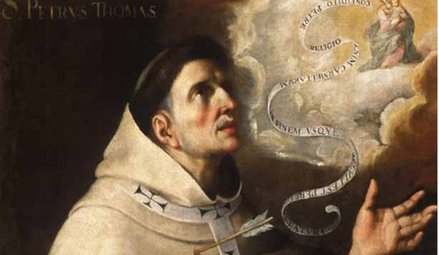
Saint Pierre Thomas : une confiance en la Vierge Marie à toute épreuve
Les saints
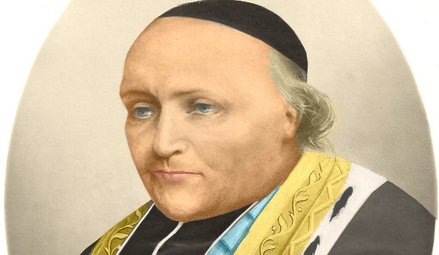
À Grenoble, le « saint abbé Gerin »
Les saints ,
Les apparitions et interventions mariales ,
Guérisons miraculeuses
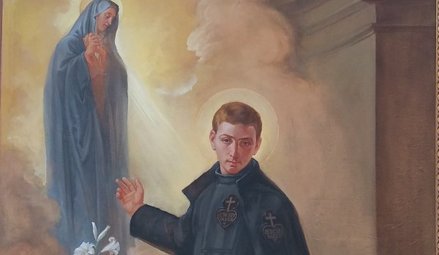
Gabriel de l’Addolorata, le « jardinier de la Sainte Vierge »
Les saints ,
Les mystiques ,
Des miracles étonnants ,
Corps conservés des saints ,
Histoires providentielles
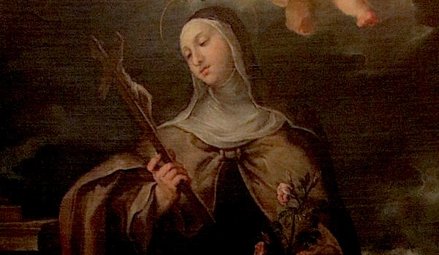
Sainte Rose de Viterbe : comment la prière change le monde
Les saints
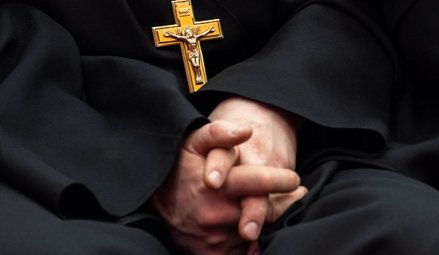
Bienheureux Francisco Palau y Quer, un amoureux de l’Église
Les saints ,
Les apparitions et interventions mariales
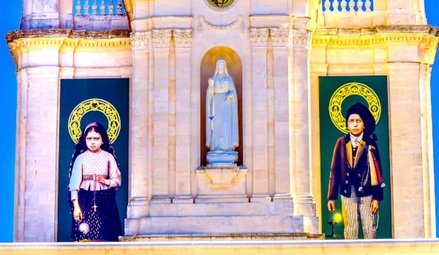
La maturité surnaturelle de Francisco Marto, « consolateur de Dieu »
L’Église ,
Les saints ,
Les apparitions et interventions mariales

San Simón Stock recibe el escapulario del Carmen de manos de la Virgen María
Les saints

San Pascual Baylon, humilde pastor
Les saints ,
Corps conservés des saints ,
Stigmates

Santa Rita de Casia, la que espera contra toda esperanza
Les saints ,
Les apparitions et interventions mariales
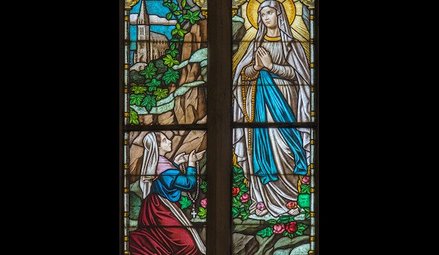
Bernadette Soubirous, bergère qui vit la Vierge
Les saints ,
Histoires providentielles
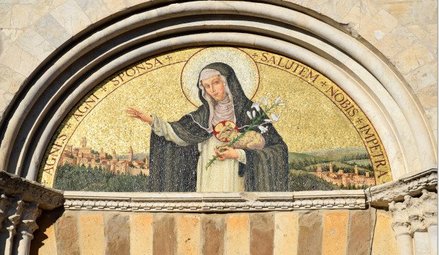
L’absolue confiance en Dieu de sainte Agnès de Montepulciano
Les saints

Sainte Catherine de Gênes, ou le feu de l’amour de Dieu
Les saints

Sainte Marie de l’Incarnation, « la sainte Thérèse du Nouveau Monde »
Les saints

Rosa Venerini ou la parfaite volonté de Dieu
L’Église ,
Les saints ,
Les apparitions et interventions mariales

Saint Simon Stock reçoit le scapulaire du Mont Carmel des mains de la Vierge Marie
Les saints

Saint Paschal Baylón: from humble shepherd to the glory of sainthood
Les saints ,
Corps conservés des saints ,
Stigmates

Saint Rita of Cascia: hoping against all hope
Les saints
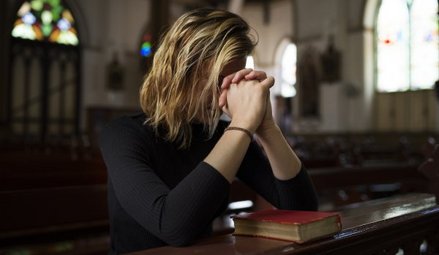
Camille de Soyécourt, comblée par Dieu de la vertu de force
L’Église ,
Les saints ,
Les apparitions et interventions mariales

San Simone Stock ricevette dalle mani della Vergine Maria lo scapolare del Monte Carmelo
Les saints

San Pascal Baylon, umile pastore
Les saints

François de Girolamo lit dans les cœurs
Les saints ,
La profondeur de la spiritualité chrétienne

Hermano Marcel Van, "una estrella ha nacido en Oriente".
Les saints ,
Corps conservés des saints ,
Stigmates

Santa Rita da Cascia, colei che spera contro ogni speranza
Les saints

La extraña barca de San Basilio de Riazán
Les saints
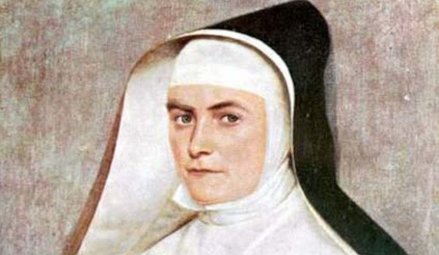
Jeanne-Antide Thouret : partout où Dieu voudra l’appeler
Les saints

The unusual boat of Saint Basil of Ryazan
Les saints ,
Corps conservés des saints

Saint Anthony of Padua: "everyone’s saint"
Les saints ,
Conversions d'athées ,
Témoignages de rencontres avec le Christ

The extraordinary conversion of Michelina of Pesaro
Les saints ,
Corps conservés des saints

San Antonio de Padua, el "santo que todo el mundo ama".
Les saints ,
Conversions d'athées ,
Témoignages de rencontres avec le Christ

La extraordinaria conversión de Micheline de Pesaro
Les saints
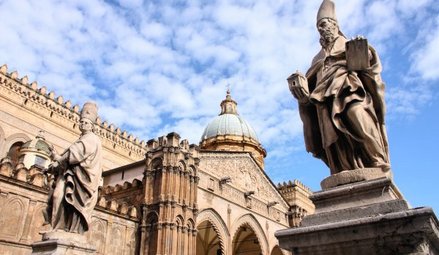
Saint Augustin de Cantorbéry apporte la bonne nouvelle sur la terre des Angles
Les saints ,
Les anges et leurs manifestations ,
Corps conservés des saints

Saint Anthony Mary Zaccaria, physician of bodies and souls
Les saints ,
La profondeur de la spiritualité chrétienne

Brother Marcel Van: a "star has risen in the East"
Les saints

Saints Louis and Zelie Martin
Les saints

La strana barca di San Basilio di Ryazan
Les saints ,
Corps conservés des saints

Sant'Antonio da Padova, il "santo che tutti amano"
Les saints ,
Les anges et leurs manifestations ,
Corps conservés des saints

San Antonio María Zaccaria, médico de cuerpos y almas
Les saints

Los Santos esposos Luis y Celia Martin
Les saints
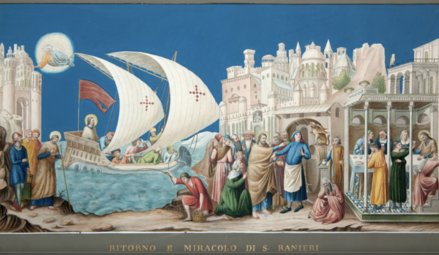
Saint Rainer de Pise : la conversion miraculeuse d’un riche négociant
Les saints ,
Conversions d'athées ,
Témoignages de rencontres avec le Christ

La straordinaria conversione di Michelina da Pesaro
Les saints
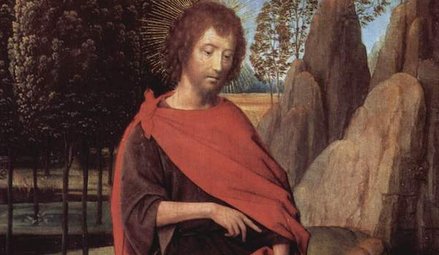
Saint Jean-Baptiste, témoin du Christ annoncé par les prophètes
Les saints ,
Les anges et leurs manifestations ,
Corps conservés des saints

Sant'Antonio Maria Zaccaria, medico del corpo e dell'anima
Les saints
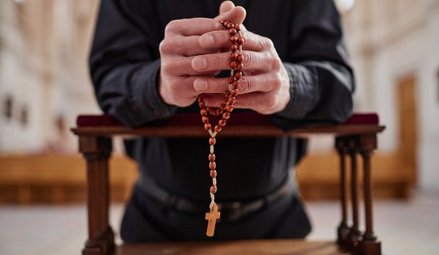
Saint Bernardin Realino répond à l’appel divin
Les saints

Santa Ana y San Joaquín, padres de la Virgen María
Les saints

San Nazario, apóstol y mártir
Les saints

San Lupo, el obispo que hizo retroceder a Atila
Les saints ,
Corps conservés des saints
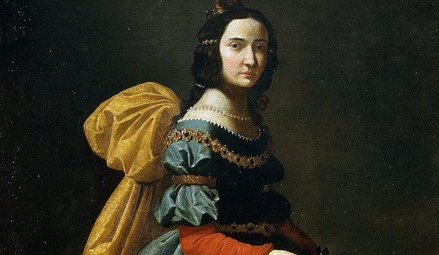
Sainte Élisabeth du Portugal, une rose en royauté
Les saints

San Ignacio de Loyola: a la mayor gloria de Dios
Les saints ,
Des miracles étonnants ,
Guérisons miraculeuses

San Juan María Vianney, la gloria mundial de un cura de pueblo
Les moines ,
Les saints

Santo Domingo de Guzmán, atleta de la fe
Les saints ,
La profondeur de la spiritualité chrétienne

Fratel Marcel Van, "una stella è sorta in Oriente"
Les saints

I santi sposi Louis e Zélie Martin
Les saints

Saints Anne and Joachim, parents of the Virgin Mary
Les saints

La confiance en Dieu de sainte Marie-Madeleine Postel
Les saints

Saint Nazarius, apostle and martyr
Les saints

Saint Lupus, the bishop who saved his city from the Huns
Les saints

Saint Ignatius of Loyola: "For the greater glory of God"
Les saints

Sant'Anna e San Gioacchino, genitori della Vergine Maria
Les saints

San Nazario, apostolo e martire
Les saints

San Lupo, il vescovo che fece indietreggiare Attila
Les saints

Sant'Ignazio di Loyola: per la maggior gloria di Dio
Les saints ,
Des miracles étonnants ,
Guérisons miraculeuses

Saint John Vianney (d. 1859): the global fame of a humble village priest
Les moines ,
Les saints

Saint Dominic de Guzman: an athlete of the faith
Les saints ,
Des miracles étonnants ,
Guérisons miraculeuses

San Giovanni Maria Vianney, la gloria mondiale di un piccolo curato di campagna
Les moines ,
Les saints

San Domenico di Guzmán, atleta della fede
Les saints ,
Témoignages de rencontres avec le Christ

Santa Faustina, apóstol de la Divina Misericordia
Les saints
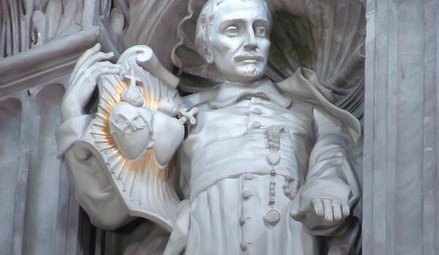
Jean Eudes, époux du Cœur Immaculé de Marie
Les saints ,
Témoignages de rencontres avec le Christ

Saint Faustina, apostle of the Divine Mercy
Les saints
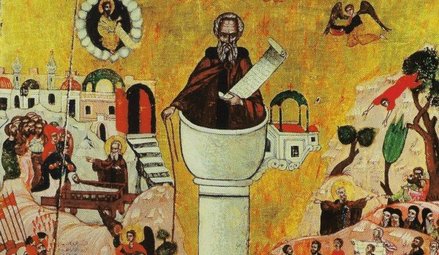
Syméon monte sur une colonne pour demeurer seul avec le Christ
Les saints ,
Témoignages de rencontres avec le Christ

Santa Faustina, apostola della divina misericordia
Les moines ,
Lévitations ,
Stigmates ,
Conversions d'athées ,
Témoignages de rencontres avec le Christ

Saint Francis, the poor man of Assisi
Les moines ,
Lévitations ,
Stigmates ,
Conversions d'athées ,
Témoignages de rencontres avec le Christ

San Francisco, el pobre de Asís
Les saints ,
Les grands témoins de la foi

Ignacio de Antioquía: sucesor de los apóstoles y testigo del Evangelio
Les saints ,
Les grands témoins de la foi

Ignatius of Antioch: successor of the apostles and witness to the Gospel
Les moines ,
Lévitations ,
Stigmates ,
Conversions d'athées ,
Témoignages de rencontres avec le Christ

San Francesco, il poverello d'Assisi
Les saints
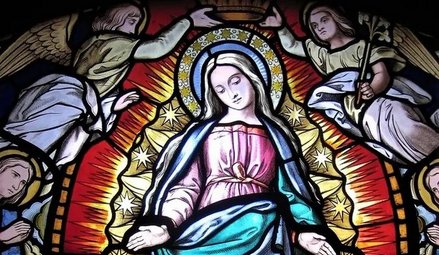
Thérèse Couderc remet tout entre les mains de Marie
Les saints

Brother Alphonsus Rodríguez, SJ: the "holy doorkeeper"
Les saints

Alonso Rodríguez, el santo jesuita portero
Les saints ,
Des miracles étonnants ,
Bilocations

Martin de Porrès regresa para acelerar su beatificación
Les saints ,
Des miracles étonnants ,
Bilocations

Martin de Porres returns to speed up his beatification
Les saints ,
Les grands témoins de la foi

Newman cherche la véritable Église du Christ
Les saints ,
Les grands témoins de la foi

Ignazio di Antiochia: successore degli apostoli e testimone del Vangelo
Les saints

Dieu parle par la bouche de la bienheureuse Madeleine de Panattieri
Les saints ,
Des miracles étonnants

Saint Martin of Tours: patron saint of France, father of monasticism in Gaul, and the first great leader of Western monasticism
Les saints
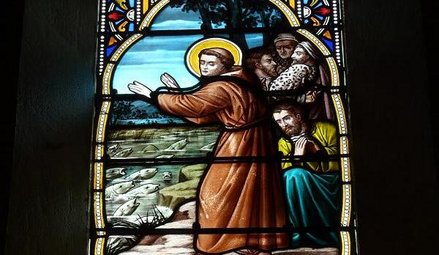
La « légende » des saints n’est pas un mythe
Les saints
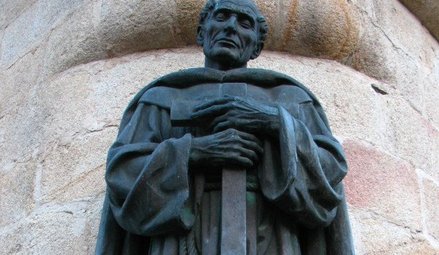
Pierre d’Alcantara, à qui Dieu ne refuse rien
Les saints

Saint Gregory the Miracle-Worker
Les saints

Alfonso Rodríguez, il santo portinaio gesuita
Les saints

Hilaire de Mende, un saint évêque thaumaturge
Les saints
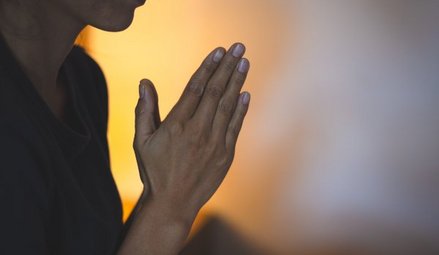
Celina Chludzinska, une vie entre les mains de Dieu
Les saints ,
Des miracles étonnants

San Martín de Tours, padre de la Francia cristiana
Les saints ,
Des miracles étonnants ,
Bilocations

Martín de Porres torna per accelerare la sua beatificazione
Les saints

San Gregorio Taumaturgo
Les saints
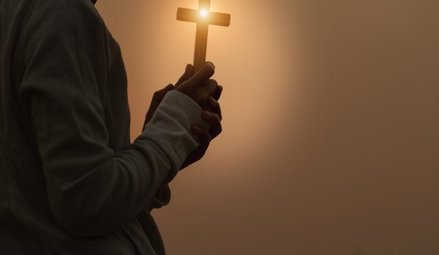
Le succès étonnant des prédications de saint Ange d’Acri
Les saints ,
Des miracles étonnants

San Martino di Tours, padre della Francia cristiana
Les saints

San Gregorio Taumaturgo
Les saints ,
Une vague de charité unique au monde ,
Corps conservés des saints

Virginia Centurione Bracelli: When God is the only goal, all difficulties are overcome
Les saints ,
Une vague de charité unique au monde ,
Corps conservés des saints

Virginia Centurione Bracelli: cuando las cosas se ponen difíciles
Les saints
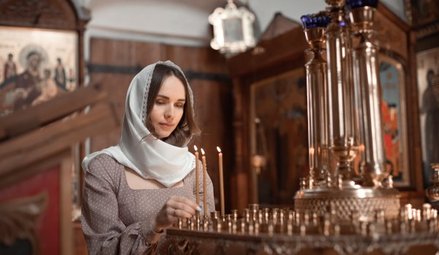
Le mariage virginal de bienheureuse Delphine de Sabran
Les saints
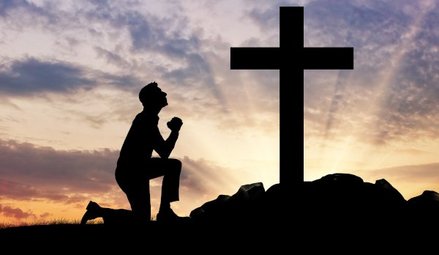
Jacques de la Marche transmet la foi catholique à travers l’Europe
Les saints ,
Une vague de charité unique au monde ,
Corps conservés des saints

Virginia Centurione Bracelli: quando tutte le difficoltà vengono meno
Les saints

Seraphim of Sarov: the purpose of the Christian life is to acquire the Holy Spirit
Les saints ,
Guérisons miraculeuses
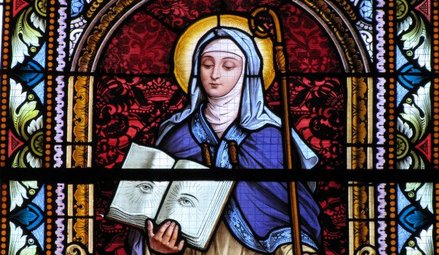
Née aveugle, sainte Odile retrouve la vue lors de son baptême
Les saints ,
Les apparitions et interventions mariales ,
Des miracles étonnants ,
Corps conservés des saints

Saint Peter Thomas: a steadfast trust in the Virgin Mary
Les saints

Cuando el monje Serafín contempla al Espíritu Santo
Les saints
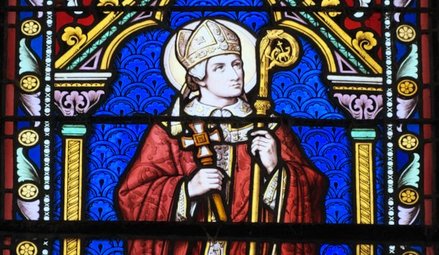
Gatien, apôtre de la Touraine
Les saints
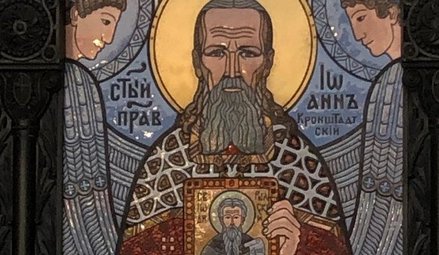
La vie en Jésus Christ de Jean de Cronstadt
Les saints ,
Les apparitions et interventions mariales ,
Des miracles étonnants ,
Corps conservés des saints

San Pedro Tomás: una confianza inquebrantable en la Virgen María
Les saints

Quando il monaco Serafino contemplava lo Spirito Santo
Les saints
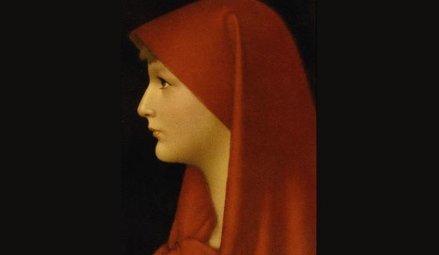
La grande conversion de Fabiola
Les saints
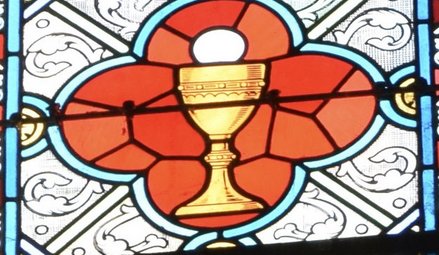
Gaspard del Bufalo, le prêtre qui a dit non à Napoléon
Les saints ,
Les apparitions et interventions mariales ,
Des miracles étonnants ,
Corps conservés des saints

San Pietro Tommaso e la sua fiducia incrollabile nella Vergine Maria
Les saints

Mélanie la Jeune : par le chas d’une aiguille
Les saints
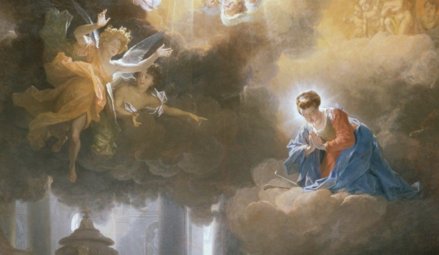
Sainte Geneviève, patronne de Paris
Les moines ,
Les saints
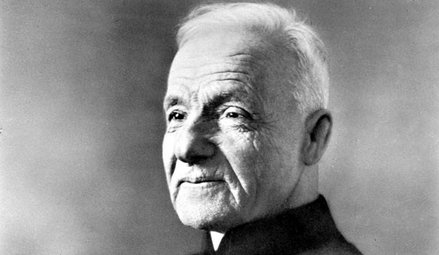
Saint André Bessette, serviteur de saint Joseph
Les saints

Saint Remi, l’évêque qui baptisa le roi des Francs
Les saints

Father Gerin, the holy priest of Grenoble
Les saints

Saint Ildefonse de Tolède, défenseur de la Vierge Marie
Les saints

A Grenoble, il "santo abate Gerin"
Les saints ,
Les apparitions et interventions mariales ,
Guérisons miraculeuses

Gabriel of Our Lady of Sorrows, the "Gardener of the Blessed Virgin"
Les saints
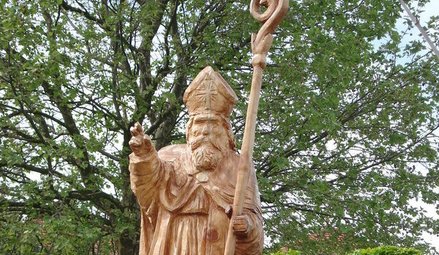
Saint Avit de Vienne affirme la divinité de Jésus
Les saints
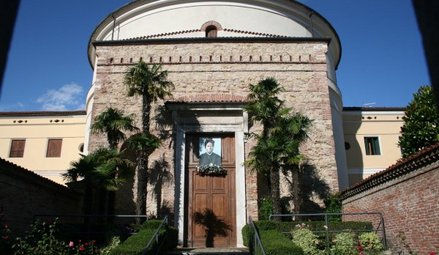
Sainte Joséphine Bakhita, de la souffrance à l’amour
Les saints

En Grenoble, el "santo abate Gerin".
Les saints ,
Les mystiques ,
Des miracles étonnants ,
Corps conservés des saints ,
Histoires providentielles

Saint Rose of Viterbo: how prayer changes the world
Les saints ,
Histoires providentielles
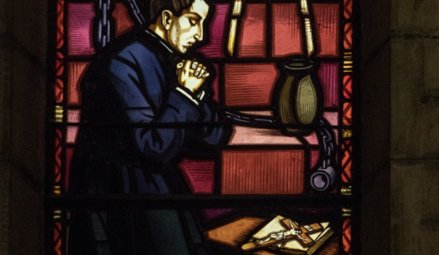
Claude La Colombière prédit son emprisonnement
Les saints ,
Les apparitions et interventions mariales ,
Guérisons miraculeuses

Gabriel de l'Addolorata, el "jardinero de la Virgen María"
Les saints ,
Les mystiques ,
Des miracles étonnants ,
Corps conservés des saints ,
Histoires providentielles

Santa Rosa de Viterbo: cómo la oración cambia el mundo
Les saints ,
Les apparitions et interventions mariales ,
Guérisons miraculeuses

Gabriele dell'Addolorata, il "giardiniere della Vergine Maria"
Les saints

Blessed Francisco Palau y Quer: a lover of the Church
Les saints

Beato Francisco Palau y Quer, amante de la Iglesia
Les saints ,
Les mystiques ,
Des miracles étonnants ,
Corps conservés des saints ,
Histoires providentielles

Santa Rosa da Viterbo: come la preghiera cambia il mondo
Les saints ,
Les apparitions et interventions mariales

La madurez sobrenatural de Francisco Marto, "consolador de Dios".
Les saints

Le pacte de la comtesse Molé avec la Croix de Jésus-Christ
Les saints

Il beato Francisco Palau y Quer, amante della Chiesa
Les saints ,
Les apparitions et interventions mariales

The supernatural maturity of Francisco Marto, “contemplative consoler of God”
Les saints ,
Les apparitions et interventions mariales

Bernadette Soubirous, the shepherdess who saw the Virgin Mary
Les saints ,
Les apparitions et interventions mariales

Bernadette Soubirous, la pastora que vio a la Virgen María
Les saints ,
Histoires providentielles

Saint Agnes of Montepulciano's complete God-confidence
Les saints ,
Les apparitions et interventions mariales

La maturità soprannaturale di Francisco Marto, "consolatore di Dio"
Les saints

Saint Catherine of Genoa and the Fire of God's love
Les saints

Jeanne-Marie de Maillé traverse les humiliations et la misère accompagnée par la Vierge Marie
Les moines ,
Les saints
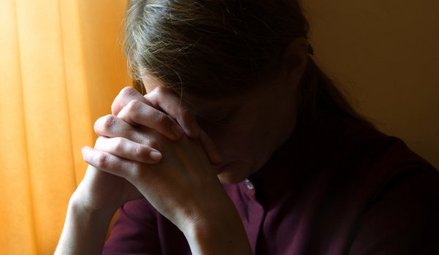
Mère Marie Skobtsova, une moniale hors du commun
Les saints
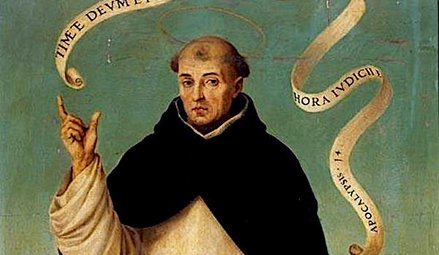
Saint Vincent Ferrier, mirificus praedicator
Les saints

Saint Marie of the Incarnation, "the Teresa of New France"
Les saints ,
Histoires providentielles

La absoluta confianza en Dios de Santa Inés de Montepulciano
Les saints

Santa Catalina de Génova, o el fuego del amor de Dios
Les saints

Santa María de la Encarnación, "la Santa Teresa del Nuevo Mundo".
Les saints

Rosa Venerini o la perfecta voluntad de Dios
Les saints

Camille de Soyécourt, bendecida por Dios con la virtud de la fuerza
Les saints

Francisco de Jerónimo lee los corazones
Les saints ,
Les apparitions et interventions mariales

Bernadette Soubirous, la pastorella che vide la Vergine Maria
Les saints

Rosa Venerini: moving in the ocean of the Will of God
Les saints

Camille de Soyécourt, filled with divine fortitude
Les saints
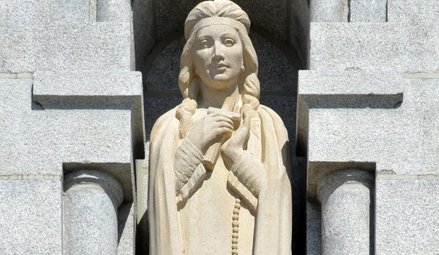
Kateri Tekakwitha, une sainte chez les Mohawks
Les saints ,
Histoires providentielles

La fiducia assoluta in Dio di Sant'Agnese da Montepulciano
Les saints

Santa Caterina da Genova, ovvero il fuoco dell'amore divino
Les saints

St. Francis di Girolamo's gift of reading hearts and souls
Les saints

Santa Maria dell'Incarnazione, "la Santa Teresa del Nuovo Mondo"
Les saints
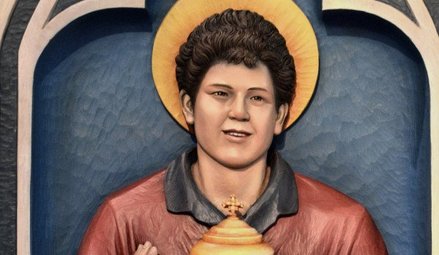
Carlo Acutis, faire-valoir de Jésus Hostie
Les saints
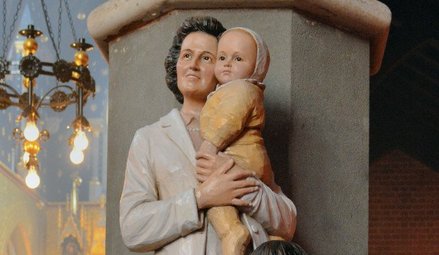
Sainte Gianna Beretta Molla donne la vie, au prix de la sienne
Les saints
